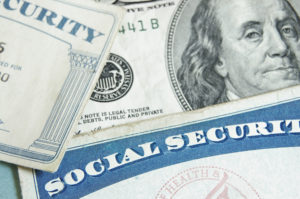What Do You Do When You Owe Taxes But Don’t Have the Funds?
For many people tax season brings the joy of a nice big refund to go out and splurge on something they’ve had your eye on for a long time. On the flip side of the equation are those people who surprisingly, or not, end up owing the IRS money. Not only do these people miss out on the extra cash influx, but they also have to come up with the funds to pay off the extra tax bill.
For some people, depending how high the bill is, they could have to pay even more than just the shortage amount. That’s because many times when people underpay they end up owing penalties for the underpayment. For those who owe a lot of money, those penalties could end up being huge. In fact, the penalties can even be much higher than the shortage.
That’s why it’s always best to try to avoid owing any money to the IRS, especially if you don’t have the funds to pay it off when the tax bill comes due. So what happens to people who can’t pay their tax bill? You do have a few options.
In some cases, it might be a good idea to take out a loan or a line of credit in order to pay off the bill. Of course, you will then be responsible to pay off the loan, so use caution. Another option is to apply for an extension with the IRS. This could buy you a little time to come up with the needed funds. If you need even more time then try applying for a hardship extension, which could give you up to six months to pay it off. You could also ask the IRS for permission to set up a payment plan to pay off the debt in installments.
Whichever path you decide to take, make sure you do something. Don’t ignore the problem or it will only get worse. The penalties will likely increase the longer you wait and the IRS could eventually take other measures or even press charges. So the bottom line is: do something.
Most Retirement Plan Dollar Limits Increase for 2007
Most Retirement Plan Dollar Limits Increase for 2007 IRS has announced the 2007 cost-of-living adjustments (COLAs) for retirement plans. Many of the limits applicable to pension, and other retirement plans, increase for 2007. For most of the limitations, the increase in the cost-of-living index met the statutory thresholds that trigger their adjustment. Increased limits. The…
Banks Are Reaping the Benefits From Inversions
Banks Are Reaping the Benefits From Inversions Up until now, most of the attention regarding tax inversions has been put on the companies that have been choosing to make these deals. After all, it’s the companies that are saving a bunch of money on their taxes and supposedly cheating the U.S. Treasury out of more…
Simplified per-diem rates boosted for post-September 30 business travel
Simplified per-diem rates boosted for post-September 30 business travel Simplified per-diem rates boosted for post-September 30 business travel Rev Proc 2006-41, 2006-43 IRB Many companies use per-diem rates to reimburse their employees for business travel expenses rather than requiring employees to submit receipts for their expenditure. The IRS recently increased the simplified per-diem rate (high-low…
A Creative Plan to Help Lighten Your Tax Load
A Creative Plan to Help Lighten Your Tax Load Everyone likes to save as much as they can on their taxes every year. Of course, this is a noble goal and everyone should be doing exactly that. Likewise, everyone likes to keep his or her tax return as easy and simple as possible, which is…



